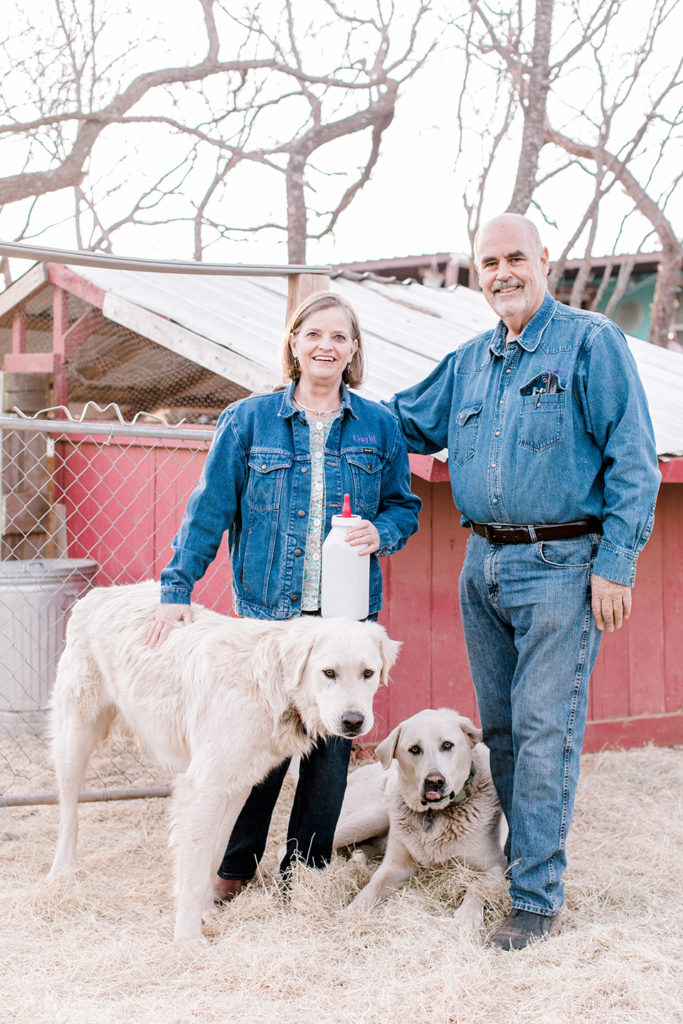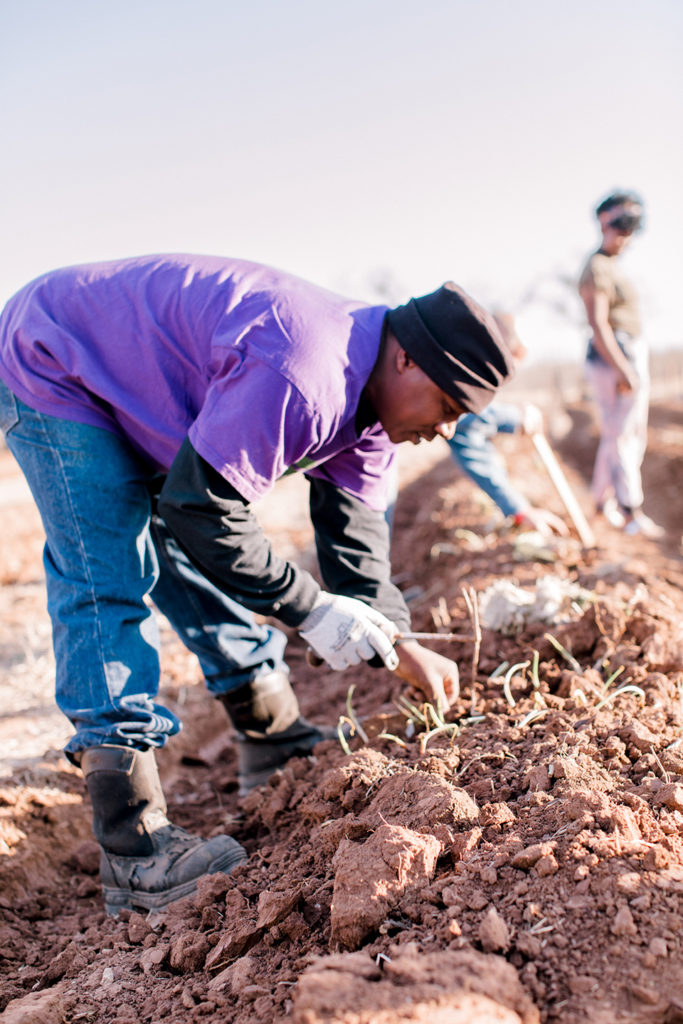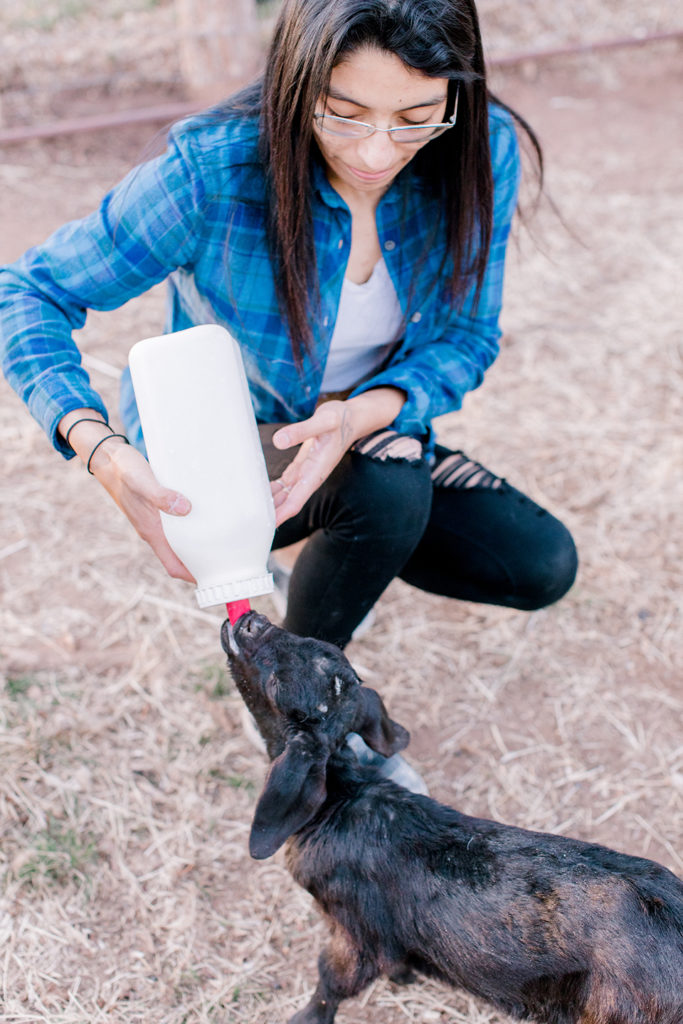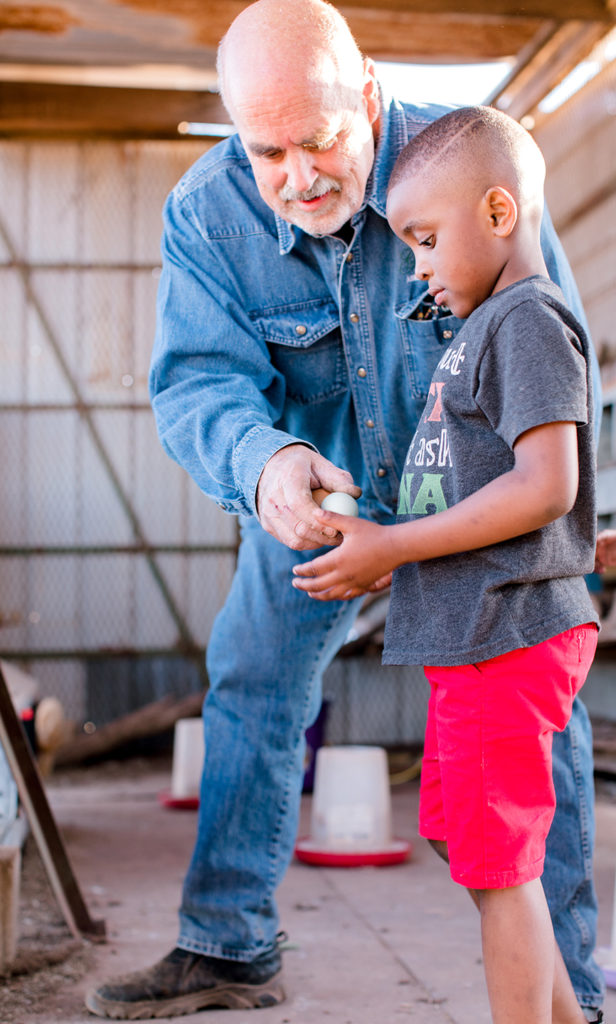The thought of plucking fresh veggies out of the ground or off the stalk brings a big smile to the face of Cyprien Kilulu, a refugee from the Congo who resettled in Abilene in 2010.
Thanks to the generosity of Paul Thomas and Gayla Fullerton and their Grapevine Farms, Kilulu and other refugees in Abilene can look forward to eating fresh produce this summer, including plants native to their home countries. 
Putting in long, hard hours in the garden is nothing new for Kilulu.
“In Africa, everybody has a garden,” he said.
Thomas and Fullerton wanted to provide a 5-acre garden for refugees to grow produce after they bought 100 acres of land in far north Abilene in 2008. In 2011, they created the nonprofit Grapevine Farms. The idea was for people to buy memberships in the nonprofit and be allowed to grow their own garden. Originally, 45 people joined. Thomas and Fullerton prepared the garden section of the farm and provided water. Members did their own planting, weeding, and harvesting. But, Thomas said, 2011 turned out to be a bad weather year for growing a garden.
The next year, people began dropping out, and the garden venture was cut in half. At the time, Fullerton was serving on the board of directors of Habitat for Humanity and knew of the many refugees who had been resettled in Abilene through the International Rescue Committee. She also had been in Leadership Abilene with Susanna Lubanga, resettlement director for the IRC in Abilene. Thomas had a thought – perhaps one of those refugees with an agricultural background would want a full-time job overseeing Grapevine Farms. 
Since opening in 2003, the IRC has helped hundreds of refugees resettle in Abilene. When refugees arrive in Abilene–or other resettlement locations in the United States–they have from 120 to 180 days to become self-sufficient, depending on circumstances, Lubanga said. Many don’t speak English at all or have limited speaking ability, making finding a job difficult. Their struggles and perseverance made an impression on Thomas and Fullerton.
“We like to support their endeavors,” Thomas said.
Cultural differences, even in gardening, have been challenging and sometimes just downright comical. When refugees first started working the garden, in 2014, some thought the weeds looked like vegetables from home. So, they ate them, Fullerton recalled. They also had trouble understanding how to grow and prepare some of the produce.
“They thought watermelon was some sort of squash,” Fullerton said, and tried to cook it.
But now, the garden grows plentiful supplies of onions, tomatoes, okra, squash, and other vegetables, including some that originate in Africa like a type of corn that Americans find bitter.
Thomas and Fullerton get some of the produce for providing the land and, if there is a surplus, it is donated to Love & Care Ministries or other charities in town. They have also considered creating a vegetable and fruit stand in front of the property.
Grapevine Farms is located between Ambler Avenue and I-20 on West Lake Road. From the road, it looks like many other properties, with a sprawling house, outbuildings, two large dogs, and vehicles here and there. But a walk through the back part of the property tells a different story. Goats, cows, chickens, and a couple of peacocks claim Grapevine Farms as their home. The farm animals serve a purpose, while the peacocks add an exotic beauty.

“They’re just for show,” Thomas said.
One employee lives onsite and others come and go, fulfilling a variety of jobs, from gathering eggs and bottle feeding baby goats to repairing fences. Both Thomas and Fullerton have fulltime jobs in the financial world. She is owner of the CPA firm, Fullerton & Associates. He is an asset manager, working primarily in real estate and the oil and gas industry. But it was Thomas’ previous job as an inspector for the Environmental Protection Agency in the 1990s that led to the development of Grapevine Farms. He didn’t like what he saw when he inspected commercial farms.
“Once you do that for a little while,” Thomas said, “you decide you don’t want anything out of the grocery store to eat anymore.”
Today, Thomas, Fullerton, and a group of about 40 refugees have created a place that is a little bit of heaven for all of them. Kilulu and his wife are parents of six children, ranging in age from 1 to 18 years. Other refugees have large families, too, so the home-grown produce is appreciated. 
Kilulu works as a cook at Wisteria Place and his wife works in housekeeping for Hendrick Medical Center. Kilulu was a businessman in the Congo but had a garden. When Thomas and Fullerton asked him about overseeing the large garden at Grapevine Farms, he was a little hesitant.
“I said I’ll try,” he recalled. “I like to make African food.”
Other families who want to grow their own fruits and vegetables are welcome to contact Thomas, who serves as executive director of Grapevine Farms. Families will be charged a small fee, but the reward will be great.
“We’re not trying to get rich here,” Thomas said. “We’re just trying to make opportunities for people to do what they have to.”
PHONE: (325) 665-7818
WEBSITE: GRAPEVINEFARMS.ORG
By Loretta Fulton
Photos By Shayli Anne Photography

























Leave a Reply